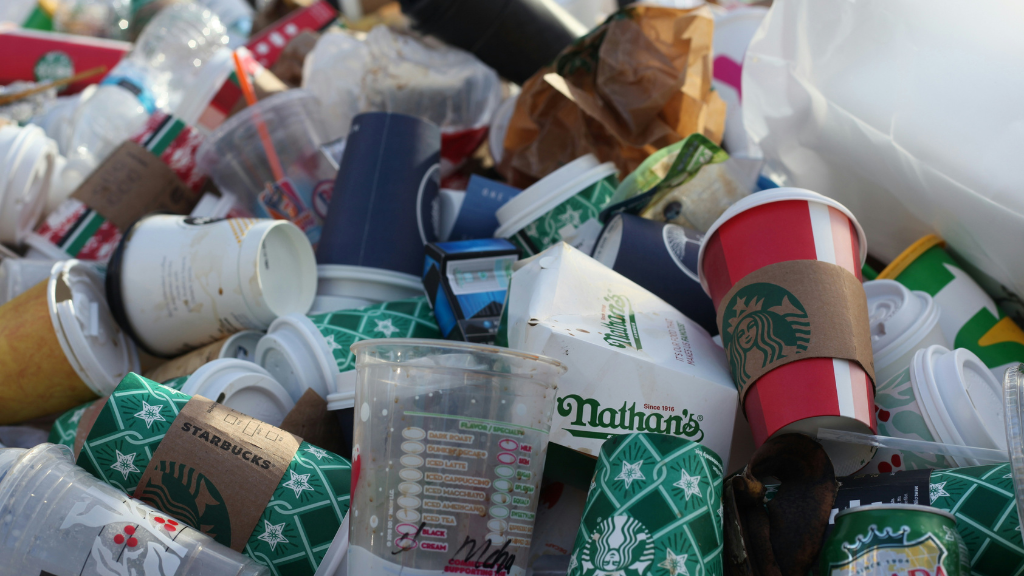ReNew ELP to build world’s first commercial-scale plastic recycling plant using Cat-HTR technology
Advanced recycling company ReNew ELP has been awarded a £4.42 million grant from Innovate UK, the UK's innovation agency, to build the world's first commercial-scale plastic recycling plant using Cat-HTR technology.
The grant will aid ReNew ELP in the construction of the initial plant which will see 80,000 tonnes of waste plastic recycled annually upon completion.
Currently, many post-consumer plastics (including packaging such as plastic films, pots, tubs and trays) are classified as "unrecyclable" through traditional mechanical recycling methods, and are instead sent to landfill or incineration in the UK and overseas. This practice also sees considerable leakage into the environment, causing plastic pollution - approximately 8 million tonnes of waste plastic end up in the world's oceans each year. Currently, the UK recycles 46% of plastics placed on the market, against a Government aspiration of 70%.
The technology, Cat-HTR (Catalytic Hydrothermal Reactor), uses supercritical water, heat and pressure to convert waste plastic considered "unrecyclable" through traditional mechanical means back into the valuable chemicals and oils from which it was made, for use in the petrochemical industry in the production of new plastic and other materials. This helps to create a circular economy for plastic and helps to reduce plastic pollution.
Rebecca Pow MP, Under-Secretary of State for Defra says: "The Government is committed to both clamping down on the unacceptable plastic waste that harms our environment and ensuring more materials can be reused instead of being thrown away. By investing in these truly ground-breaking technologies we will help to drive these efforts even further, and I look forward to seeing them develop and deliver real results."
Alongside diverting plastic away from polluting the environment, the Cat-HTR technology represents significant overall environmental benefit. Initial independent studies have already shown that advanced recycling can reduce CO2 emissions by 1.5 tonnes for every tonne of plastic waste processed when compared to incineration. This means that the completed ReNew ELP site at Wilton will save approximately 120,000 tonnes of CO2 annually, when compared to incineration. Environmental benefits include:
- Reducing plastic pollution of the natural environment
- 1.5 tonnes CO2 emissions saving per tonne of plastic processed via advanced recycling when compared to incineration
- An increased scope of recyclable plastics, including those classed as ‘unrecyclable'
- As Cat-HTR is not a combustion process, it does not produce toxic by-products such as dioxins
- A reduction on fossil sourced feedstock for the manufacture of new plastics
- High yields - up to 85% of the mass of plastic is converted to hydrocarbon products
- Minimal waste is produced- impurities (colourants, additives, fillers etc.) in the plastic feedstock fall out into the heavier hydrocarbon feedstocks, which can be used in construction
A key benefit of the Cat-HTR technology is its ability to recycle multi-layer, flexible plastic materials. It is also able to process food-contaminated, mixed-polymer streams without need for segregation.
Vitally, new materials made from ReNew ELP's advanced recycled feedstocks are suitable for use in food-contact packaging material, a problem area for mechanical recycling systems whose products do not meet European Food Standard Agency requirements.
Jacob Young, MP, says: "This is fantastic news for our area, for our chemical sector, but crucially for the environment. ReNew ELP's technology shows we can go further in recycling those difficult to recycle plastics and help to tackle waste and prevent landfill. The Government's £4.42 million Innovate UK grant given to ReNew ELP shows we are willing to try every avenue to win the war on waste and I'm pleased to have such an innovative company on our doorstep in Redcar & Cleveland."
The technology demonstrates a complementary solution to sit alongside traditional mechanical recycling to create a circular economy. It also offers those in the plastic supply chain, from manufacturers to brands and retailers, an alternative means for disposing of their flexible and multi-layer plastic packaging, which no longer needs to be incinerated or sent to landfill but can instead be recycled. This new process goes hand in hand with efforts to reduce single-use plastic and helps to create a plastic-neutral society.


